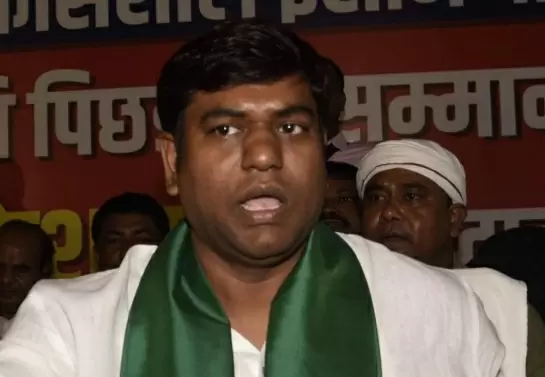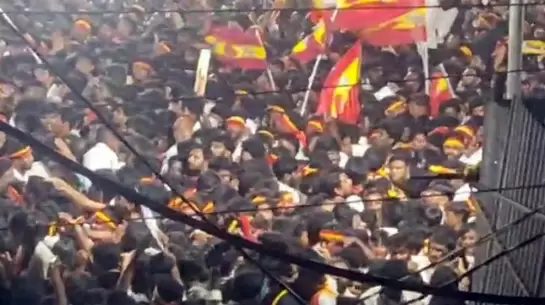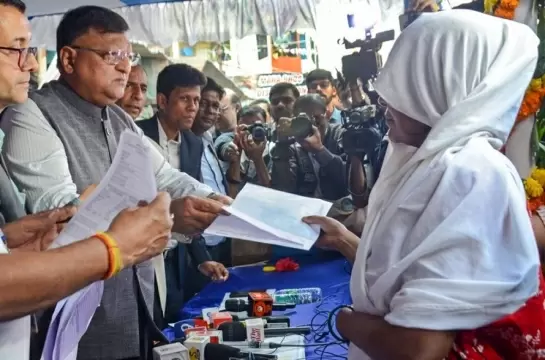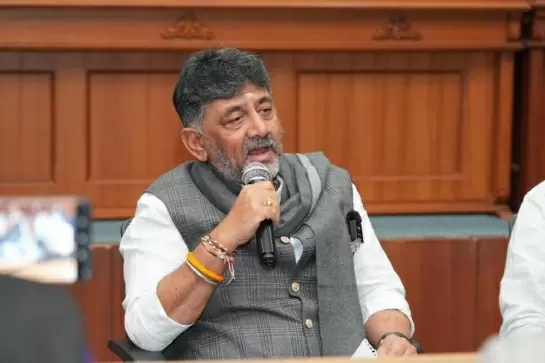Against all odds, they attend school and are made to stay put with incentives
30-March-2015
Vol 6 | Issue 13
Khushi Mena, a student of Rajkiya Unch Prathmik Vidyalaya, Kitoda, walks no less than five kilometres every day to get to school along with her siblings, Prakash and Mukesh.
Whereas it’s not uncommon for children of Kitoda village in Girwa block of Rajasthan’s Udaipur district to drop out because of the long distances they have to traverse, Khushi is determined to stick on.
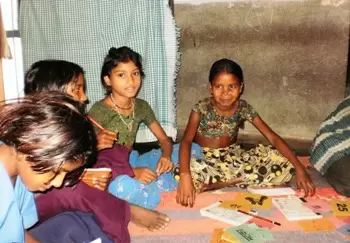 |
|
Panchayats and the local civil society organisations have introduced various incentives to improve enrolment at schools in Udaipur district (Photos: WFS)
|
Highlighting the kind of perils they endure during their daily trek Khushi quietly mentions their run in with a wild animal one afternoon.
“It was around 4 pm and we were returning home. We spotted the animal from far and were scared. Thankfully, it simply saw us and turned away. At times we have had to save ourselves from snakes, too,” she says, matter-of-fact.
Long distances and wild animals are not their only challenges though. Come monsoon and they have to cross several natural streams that spring up along the way.
“As the water levels rise we have to patiently wade through them to get to class. Many a time we arrive late but we still make it a point to go,” she adds.
Of course, not everyone is able to beat these tough odds. Surmal, a resident of Amarpura, 40 kilometres from Udaipur, is a father of four and his greatest worry is the poor attendance of his children.
“When the weather is rough they have to stay at home. We do not have affordable transportation facilities around here and I can’t take the chance of anything untoward happening to them. I want them to study well but I fear that one day they might lose their admission as they miss school frequently,” he remarks.
Fortunately, across the region, both the panchayats and the local civil society organisations have been trying to introduce different incentives, ranging from providing affordable transportation to singing motivational songs at night meetings for parents, to forming groups of all-women escorts to improve enrolment and keep the drop-out rates in check.
Take for instance, the Udaipur-based non government organisation, Unnati Sanstha, which is working towards ensuring quality education for students like Khushi, Prakash and Mukesh.
According to a study conducted by Unnati Sanstha across eight panchayats of Girwa, Sarada and Kherwada blocks, only 59 per cent children between 6 and14 years attend school and 46 per cent parents are discouraged from sending their children to school because of the unsafe terrain.
Marjorie Aziz, secretary of Unnati Sanstha, shares the grim realities on the ground, “This is a tribal area and illiteracy and poverty are rampant. Parents are not inclined to send their kids to school.
“In fact, they prioritise survival over education and end up pushing them into doing paid work in mines or agricultural labour. Even if this hurdle is overcome successfully there is the question of safety.
“Schools are located several kilometres from settlements and wild animals roam freely in this mountainous region. This makes them apprehensive and it contributes to the drop-out rate.”
This is where the innovative measures jointly implemented by the School Management Committees (SMCs) and NGO volunteers, in coordination with the panchayats, have managed to steer parents towards not just sending their children to school but also going all out to make sure they stay there.
Realising the need to constantly keep the elders motivated Unnati Sanstha organises regular meetings. Elaborates Aziz, “We ask families not to use their children as assets and put them to work either at home or in the marble mines, at construction sites or the cotton fields.
“Since 2008, by conducting one-on-one sessions with parents, creating ‘bhajan mandalis’ (prayer groups) that sing about merits of education, and holding meetings with the nodal officer in the Education Department we have brought about a noticeable positive change in attitudes.”
Essentially, tribals here have small land holdings that cannot provide for their large families. Consequently, they have to migrate to find work. In the villages along the Gujarat border there is heavy migration, especially during the harvest season. Children are recruited to work in cotton fields, at highway restaurants and on construction sites.
Panchayat coordinator Silwans Patel, who has been working with village communities for over six years, sings inspirational songs to promote education.
He has realised that this is an effective way to get his point across, “We work within the community and pass on our message through songs and poems. Parents, who are mostly labourers, don't mind listening to a song or two on the merits of education at the end of a crushing day’s work. They desperately want a different life for their children.”
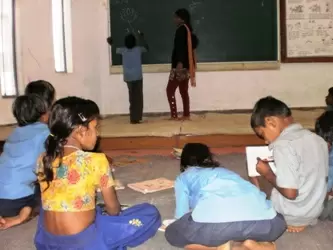 |
|
A series of measures to control the drop-out rate has paid off and retention levels has risen
|
As far as interventions go, government schools, too, have come up with some out-of-the-box ideas. Government Secondary School, Kaya, located 17 kilometres from Udaipur, has students from the sixth to the tenth grade.
Out of the 293 children enrolled, 200 come from distant villages. Anand Mehta, who teaches mathematics, observes that children study up to Class Eight and then go to the city to earn a living. “During the summer vacations, even the younger children go to work with their parents,” he says.
However, Principal Laxmi Joshi has found that offering incentives to children who show up on time works well. “Some of them cannot afford to buy pens so we give them out as prizes. During the prayer assembly, we felicitate them so that they remain motivated.”
Additionally, the school ensures that students from the marginalised SC/ST community get the government scholarships they are entitled to. “Each teacher takes out the time to go to the bank to fill out scholarship forms for children as their parents are illiterate,” says Joshi.
In places where the lack of transport poses a major problem, Unnati Sanstha had introduced a system under which children in far flung hamlets get a pick and drop.
Four years ago, support was provided to five panchayats to improve the enrolment and retention rates. Approximately 700 children, including little Khushi Mena, benefitted from this.
As the retention levels rose to 90 per cent the state government also decided to come on board. “Today, the government has temporarily halted its contribution but the community is actively demanding it. We are working with the authorities and I'm sure they will reinstate the scheme soon,” says Aziz.
Times have truly changed around these parts and so have people’s perception of education. Amarpura's Ward Panch Baalal recalls how there were no schools when he was young but things are very different now.
Concludes Ramesh Chandra Mena, father of four and an SMC member in Amarpura, “We want our children to study well so that they don’t have to work as labourers like we do. At least they will have a better, more secure, future.” - Women's Feature Service












